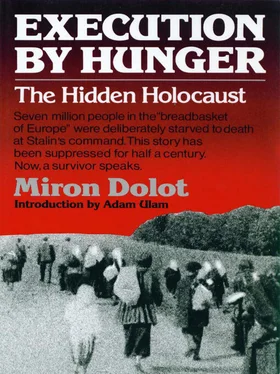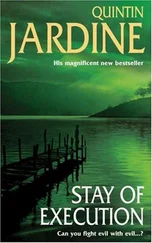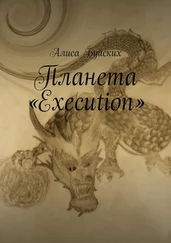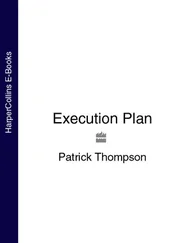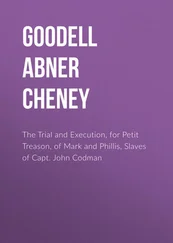What the commissar said was again repetitious. He declared that the governments of the capitalist countries did not care for poor farmers; farmers all over the world in the capitalist countries were being ruthlessly exploited; the farmers in those countries were working with primitive implements. Only in the Soviet Union were farmers taken care of: they were happy; they were embarking on the socialist way of production (he said this as if it were an accepted fact); and they were supplied with the best agricultural machinery.
“Look here,” he said, pointing with both hands at the tractor. “Where else, but in the Soviet Union, do poor farmers like you have tractors of their own? Nowhere! Only you have this advantage!”
I was standing close to the tractor and, bored with the speech, I began to examine it as well as I could from my place. On the tractor’s exhaust pipe, I noticed the trademark “International,” cast in Latin characters.
“ONLY YOU, in our beloved country, have tractors, the mighty machines that will work for you…. But the enemies of the people are conspiring against our beloved Party and people’s government,” the commissar shouted. He raised his hands. And, as if on cue, the church bells began to ring. The bells pealed more and more loudly. The crowd grew silent. All looked at the church.
No one knew who gave the signal or order, but when the Comrade Commissar raised his hands to point at the church, saying that the ringing of the bells was purposely instigated by the enemies of the people in order to sabotage his speech, the propagandists broke loose. The entire assemblage stirred with agitation. A voice near the tractor shouted:
“Down with the church!”
Another voice seconded this, and then it was repeated from one end of the square to the other.
“Down with the church! Down with the church! Down with the church!”
Suddenly posters appeared around the square, painted in white on red cloth. The posters read: “Down with the Church!” “Long live the Collective Farms!” “Long live the Communist Party!”
“Let’s go!” a voice roared.
“Let’s go!” some other voice seconded.
Shouting “hurrah,” like soldiers before hand-to-hand combat, the crowd ran toward the church in a stampede. Arriving there, they threw stones, bottles, and sticks, smashing windows and doors.
Long ladders appeared at the church wall, and dozens of propagandists quickly reached the cupolas. Then long ropes were tied around the crosses. And, amid shouting, laughter, and cursing, the propagandists yanked on the ropes until the crosses fell, smashing the roof. Then the bells were taken down, and the cupolas destroyed.
While this was happening on the roof, another group of propagandists was working inside the church. The interior was demolished. What had been a beautiful church, the pride of our village for many years, was reduced to ruins within a few minutes.
The villagers were unable to defend their place of worship. When the stampede started, some of them went home, but the majority of them stood silent, with bared heads lowered, and prayed.
We realized that this political orgy actually had been carefully planned and executed. The tractor was the focal point, and the Party Commissar, no doubt, was in command of the entire operation. We were sure that the pealing of the bells during the commissar’s speech was a part of the plan, for a propagandist rang them. We realized that the slogans had been carefully composed, and the posters painted long before being brought to our village.
The church, or what was left of it, was converted into a village theater. That very evening the propagandists danced on the place where the altar had stood.
No one knew where our priest had been during the attack on the church. It was Sunday morning, and he should have been there, but he wasn’t. Later we learned that he had actually been a collaborator of the propaganda brigade. His name was Ivan Bondar.
Bondar possessed that talent of assessing situations and using them to his advantage. Only the previous year, he had served in the church as deacon. He was tall and handsome, with a powerful voice. He could read and write, and was considered an educated man. Many of the villagers thought he would be a good priest. No doubt he himself had hopes of becoming a priest some day, for he even started to grow his hair long, a privilege reserved for Orthodox clergy. Then came collectivization, and the government stepped up the campaign against the church. Bondar suddenly disappeared from the village.
There was speculation about his disappearance. Some thought that he had been abducted by the secret police. Others thought that he had sensed the coming danger and had disappeared to some faraway region, leaving his family in the village. But shortly before the coming of the Propaganda Brigade, he reappeared in our village with long hair and pretensions of being a holy man.
One Sunday morning, when the time came to start the liturgy, none other than Bondar appeared at the altar. Without the slightest hesitation, he announced that he was our rightful priest. As if trying to avoid questions and protestations, he immediately started singing some verses in his powerful bass voice. We never received any explanation.
Later that day we learned that our old priest was gone. We never found out what happened to him; we could only guess that he had been taken away by the secret police during the night.
This all happened before the church was destroyed. There was an attempt by the church elders to find out what was going on, but all in vain. Bondar kept silent, and so did the village officials. Soon, some church elders and other active villagers began to disappear. Then the villagers started to pass the news to each other that, in confession, the new priest was very much interested in the political opinions of the penitents. It suddenly struck us that the new priest was a secret police stooge and provocateur. Bondar’s survival of the Propaganda Brigade’s assault on the church strengthened our suspicions. As we recalled, no one could find him on that fateful day. We had no doubt in our minds that he had received instructions and a warning from his bosses in advance.
After the Propaganda Brigade left the village and the ruined church behind, Bondar’s disguise was dropped. He openly associated with the Party and government officials and with their political line. This explained why he neither protested the destruction of our church, nor tried to reopen it or provide for religious services in some other way. He started to appear wherever Comrade Zeitlin and other Party officials were. He spoke at every political rally like one of their officials. Interestingly, he continued growing his beautiful beard and long hair. Indeed, he still looked like a priest.
We soon learned that Comrade Zeitlin and other officials called him Saint—Comrade Saint. The villagers, on the other hand, had their own name for him. They called him Judas—Comrade Judas.
The brigade stayed with us almost one week. We had not been allowed to leave the village all this time except for working in the fields. In the evenings, we had to stay at home, listening to the propagandists.
On Friday, the brigade left in the direction of a neighboring village, where cannon rumbling could be heard.
But we were not relieved. The army, and later the Propaganda Brigade, had now shown us the nature of Party policy. The message was clear: the Party and government had ordered compulsory collectivization, and that was what would be done.
So the trap had snapped shut, and we realized that there was no way out. Hastily introduced measures were now pulling the villagers deeper into the new system.
When the last columns of the Propaganda Brigade had left the village square, we thought we would be left alone for a while. We were tired, and confused, and deafened by the noise. We were all greatly concerned about the collectivization of our farms. Without his own land, a farmer could have neither material security nor freedom. In the course of just a few weeks so many incomprehensible and frightening events had passed. Multitudes of people had tramped through our yards and had eaten our food without asking, and our beloved church had been destroyed. We were terrified. We felt that something horrible was approaching, and we saw no escape.
Читать дальше
